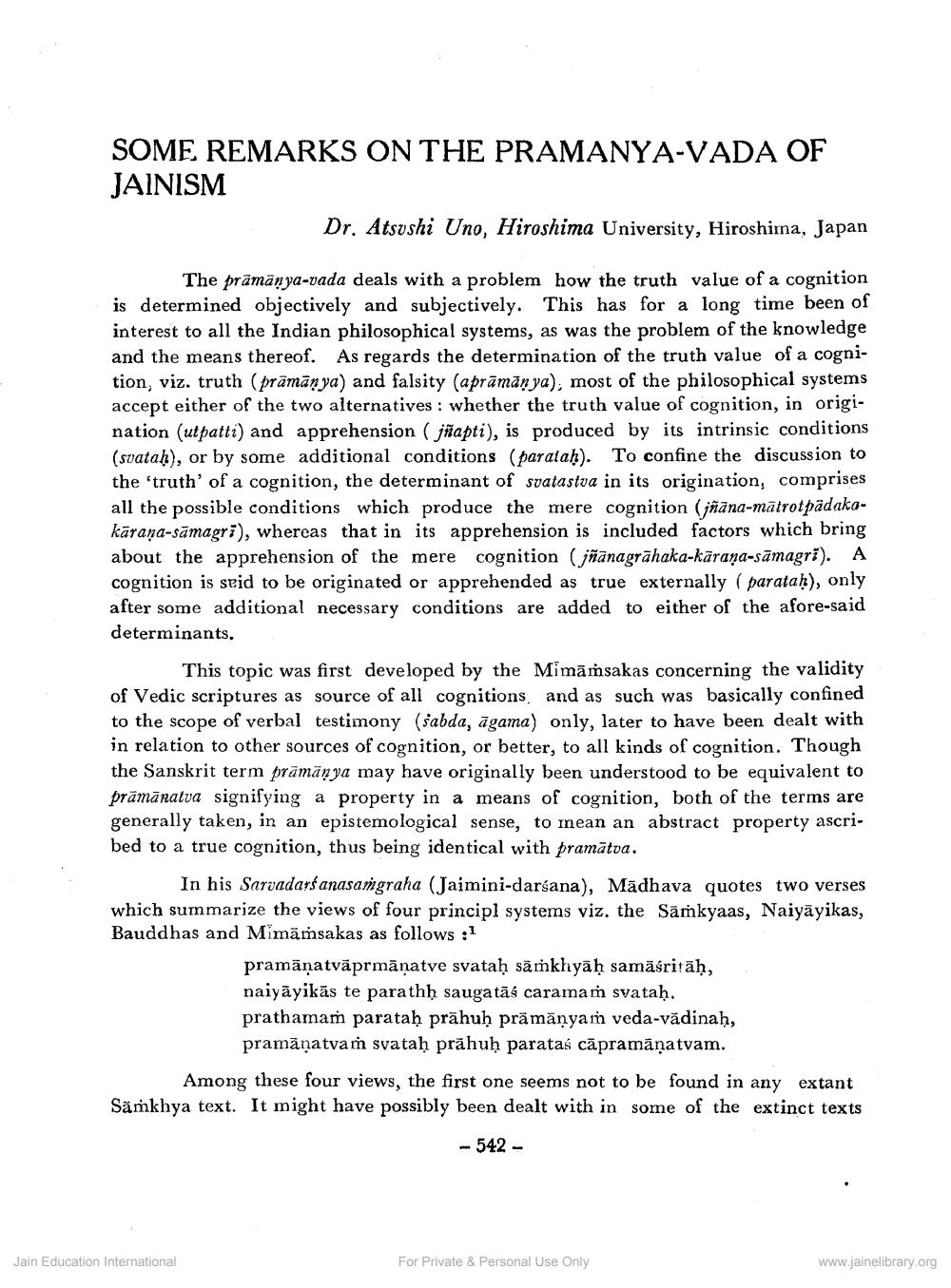Book Title: Some Remarks on The Pramanyavada of Jainism Author(s): Atsushi Uno Publisher: Z_Kailashchandra_Shastri_Abhinandan_Granth_012048.pdf View full book textPage 1
________________ SOME REMARKS ON THE PRAMANYA-VADA OF JAINISM Dr. Atsushi Uno, Hiroshima University, Hiroshima, Japan The prāmānya-vada deals with a problem how the truth value of a cognition is determined objectively and subjectively. This has for a long time been of interest to all the Indian philosophical systems, as was the problem of the knowledge and the means thereof. As regards the determination of the truth value of a cognition, viz. truth (prāmānya) and falsity (aprāmānya), most of the philosophical systems accept either of the two alternatives : whether the truth value of cognition, in origination (utpatti) and apprehension ( jñapti), is produced by its intrinsic conditions (svatah), or by some additional conditions (paralah). To confine the discussion to the 'truth' of a cognition, the determinant of svatastva in its origination, comprises all the possible conditions which produce the mere cognition (iñana-mātrotpadakakāraṇa-samagri), whereas that in its apprehension is included factors which bring about the apprehension of the mere cognition (jñānagrāhaka-kāraṇa-sāmagri). A cognition is seid to be originated or apprehended as true externally (parataḥ), only after some additional necessary conditions are added to either of the afore-said determinants. This topic was first developed by the Mimāṁsakas concerning the validity of Vedic scriptures as source of all cognitions and as such was basically confined to the scope of verbal testimony (sabda, āgama) only, later to have been dealt with in relation to other sources of cognition, or better, to all kinds of cognition. Though the Sanskrit term prāmānya may have originally been understood to be equivalent to prāmāratva signifying a property in a means of cognition, both of the terms are generally taken, in an epistemological sense, to mean an abstract property ascribed to a true cognition, thus being identical with pramātva. In his Sarvadarśanasamgraha (Jaimini-darśana), Mādhava quotes two verses which summarize the views of four principl systems viz, the Sāṁkyaas, Naiyāyikas, Bauddhas and Mimāṁsakas as follows :1 pramānatvāprmāṇatve svataḥ sāṁkhyāḥ samāśritāḥ, naiyāyikās te parathì saugatās caramam svataḥ. prathamam parataḥ prāhuḥ prämänyam veda-vādinah, pramāṇatvam svatah prāhuḥ paratas cāpramäņatvam. Among these four views, the first one seems not to be found in any extant Sämkhya text. It might have possibly been dealt with in some of the extinct texts -542 - Jain Education International For Private & Personal Use Only www.jainelibrary.orgPage Navigation
1 2 3 4 5 6 7
